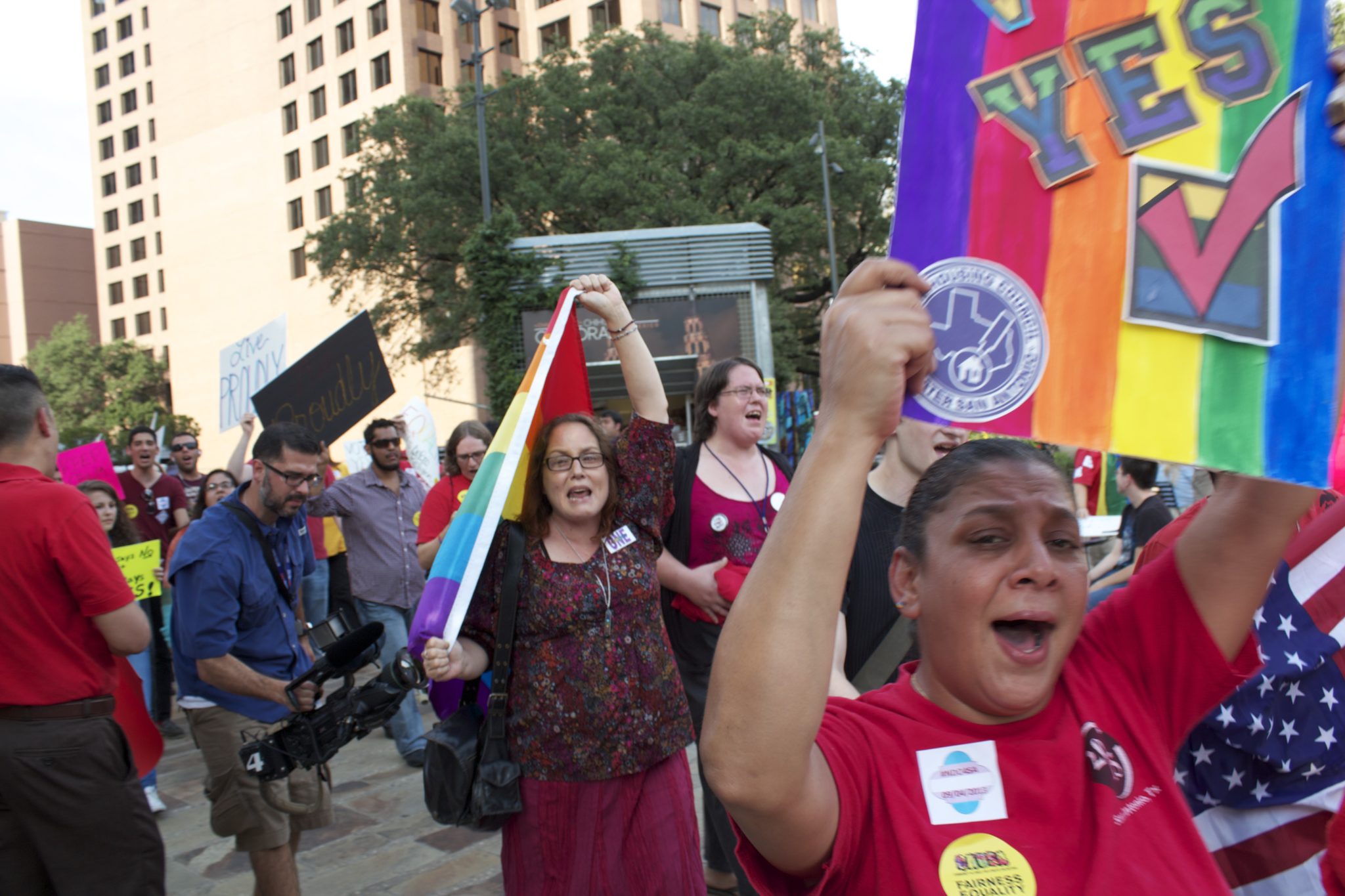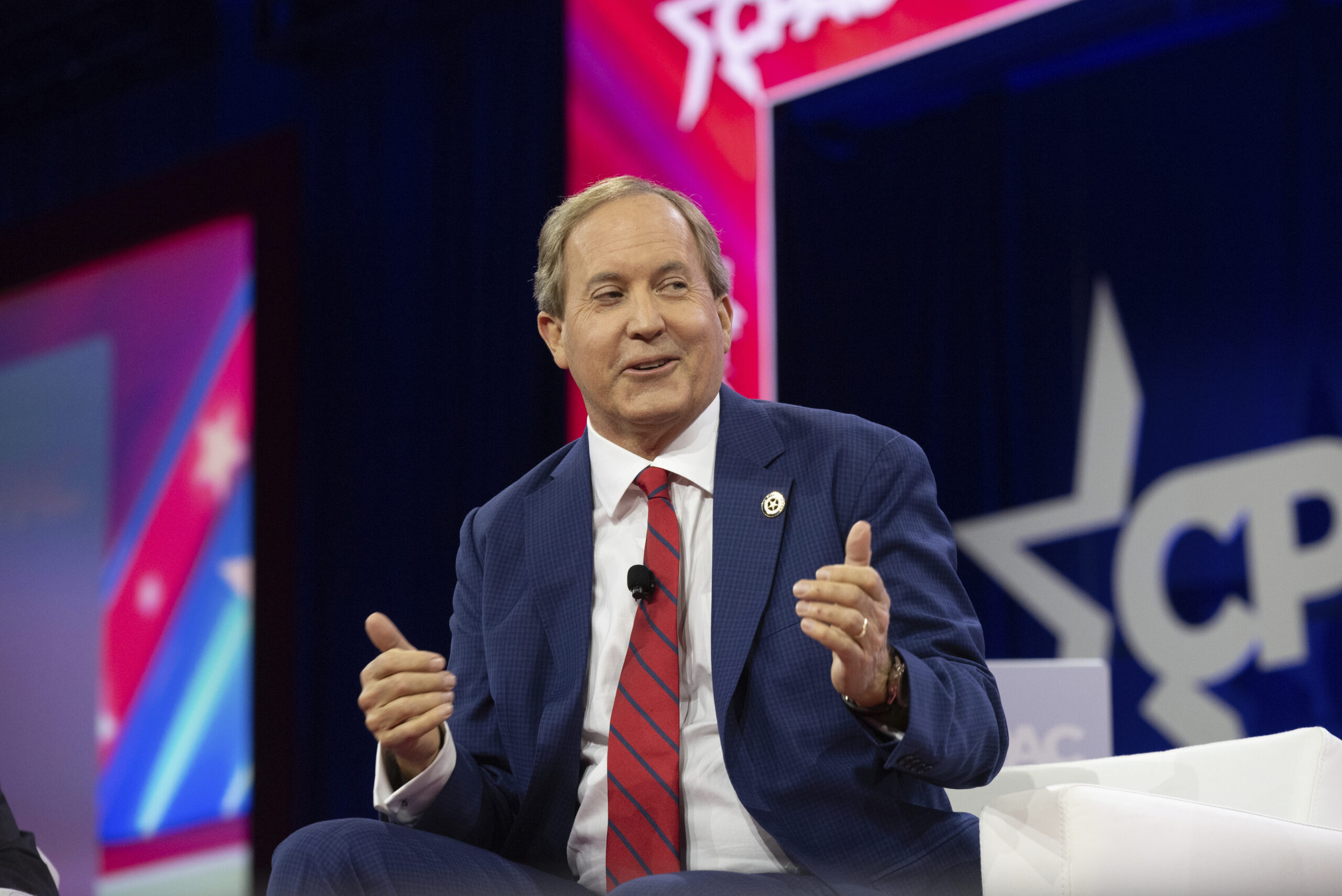
Two Big Gains for Gay Rights in Houston
Above: A September march in favor of San Antonio's non-discrimination ordinance.
Austin may have a reputation for being Texas’ most gay-friendly town, but Houston’s catching up.
Houston Mayor Annise Parker announced today that the city will start offering employment benefits like health insurance to same-sex spouses of city employees who were legally married in other states. In 2001, voters approved a city charter amendment that appears to prohibit exactly that, but Parker says because it permits benefits for “legal spouses,” then legal gay spouses should be included. (Parker, who is gay, will be unaffected by the change since she and her partner of 24 years are unmarried.)
A statement from the mayor’s office appears to claim both that the city is still legally obeying the charter amendment—the city will not extend benefits to domestic partners, for example, only to full spouses—and that the charter amendment is unlawfully discriminatory. It explained, “After a careful review of recent case law, the city legal department believes continued application of the charter amendment so as to deny same-sex spousal benefits would be unlawful because it treats employees differently on the basis of sexual orientation.”
The statement cited the August IRS decision recognizing married same-sex couples for federal tax purposes even if the couples reside in states where their marriage is not recognized. Austin, Dallas, El Paso and Fort Worth already have such policies, as does San Antonio, the recent site of an ugly squabble over whether to extend the city’s non-discrimination policy to include sexual orientation and gender identity.
It’s the second big leap forward for gay rights in Houston in as many weeks. Last Thursday, the Harris County Sheriff’s announced new policies intended to prevent sexual assault and harassment at the county jail. They include adding sexual orientation and gender orientation to the characteristics protected against discrimination and requiring new training on “updated zero-tolerance rules” about sexual abuse, harassment, improper contact and failure to report violations, according to a statement.
More radically, jail staff are now expected to consider gender identity, not merely anatomy, when deciding whether to house inmates with men or women. They’re also director to address inmates by either their chosen name or last name only, and to “follow common sense rules about whether an inmate should be searched by a male or female staffer.”
“Harris County courts will continue to mete out tough justice,” said Sheriff Adrian Garcia in the statement. “But being tough only works the right way when it is accompanied by values such as safety, fairness and dignity.”
Dignity in Houston looks to be coming along.


